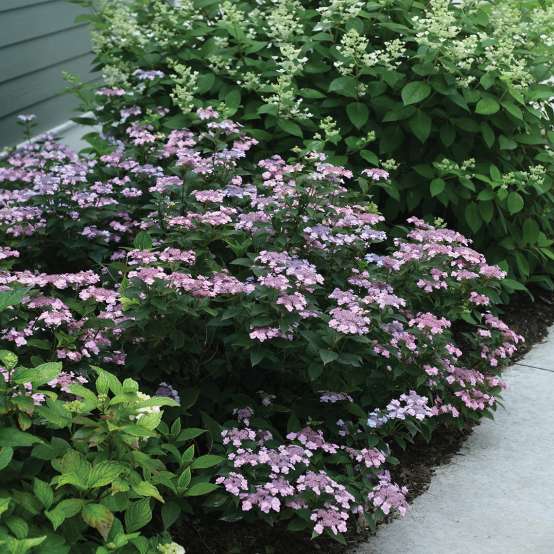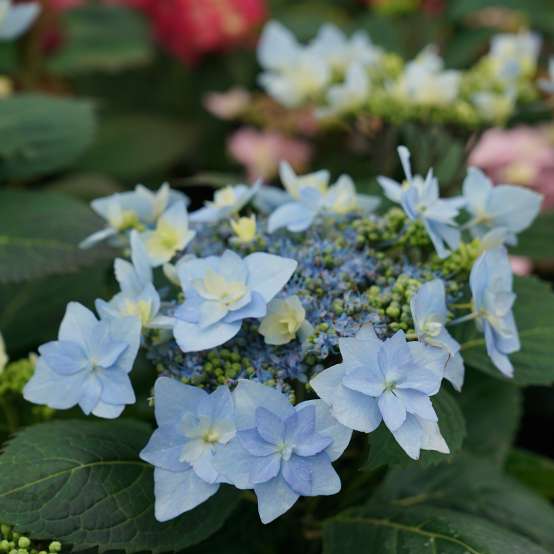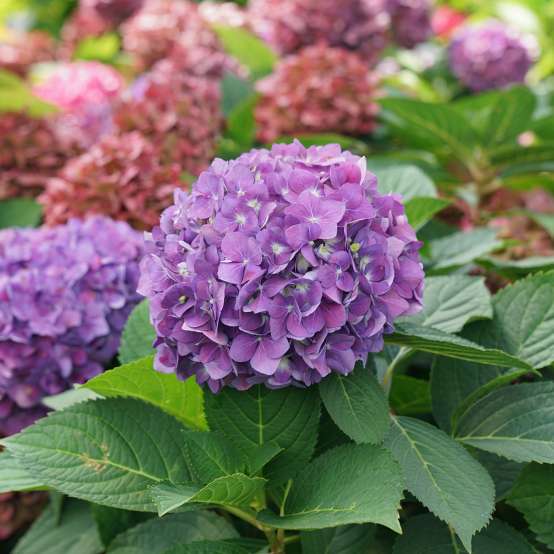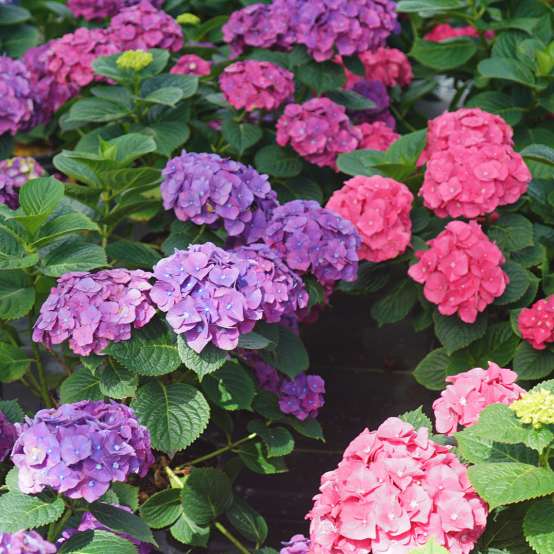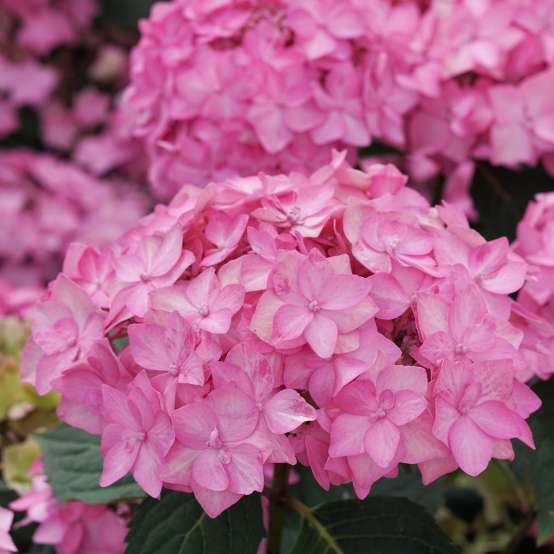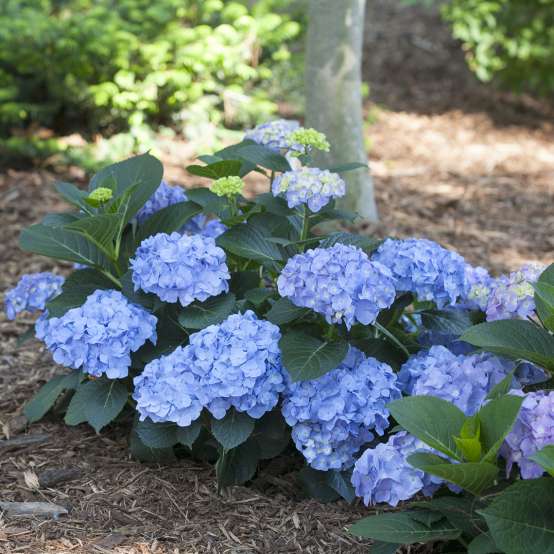Clicking the following controls will change the main image displayed above.
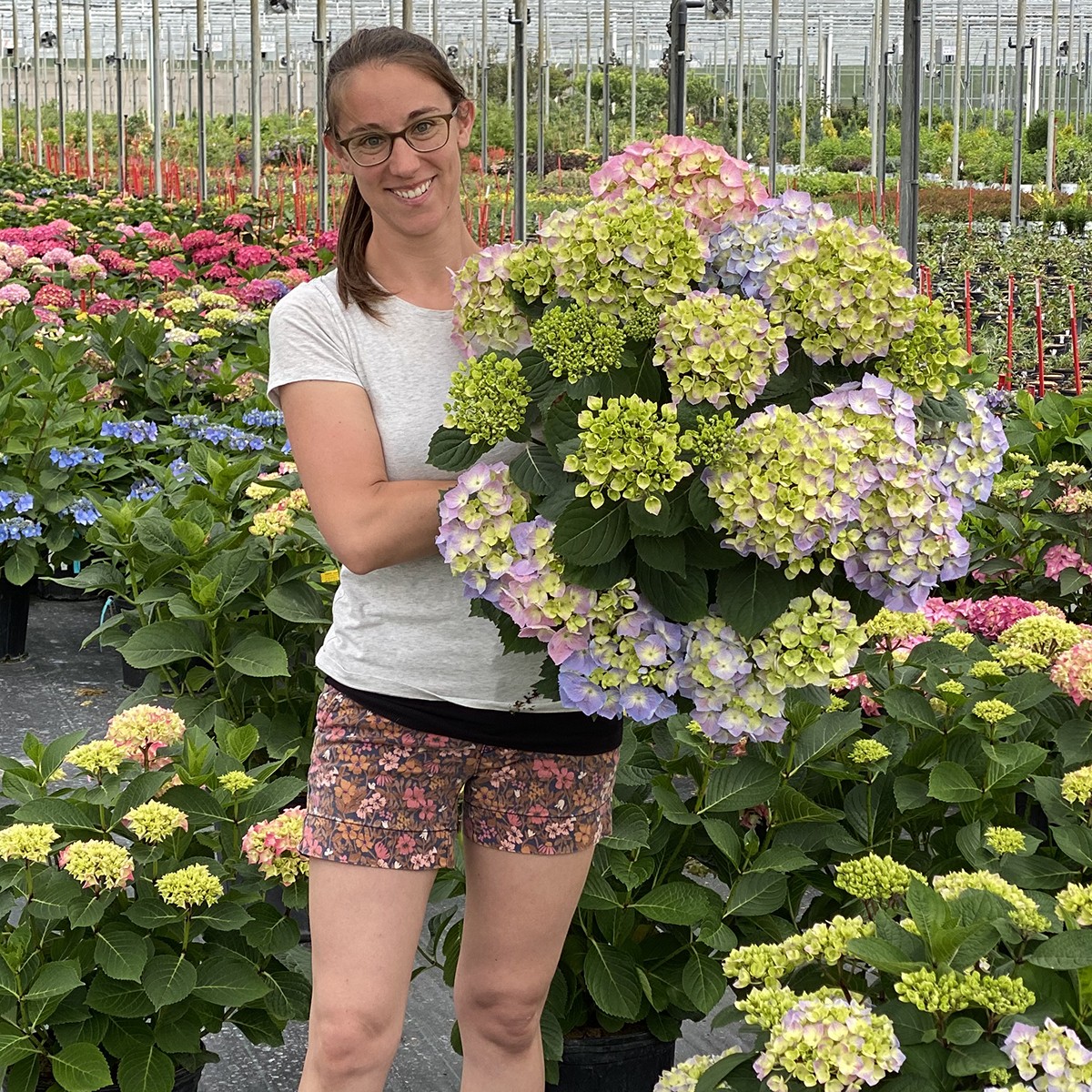
Meet the Breeder
Megan Mathey
Grand Haven, Michigan
TUFF STUFF TOP FUN®

Mountain Hydrangea
Hydrangea serrata
'SMNHSG'
PP#35,034; CBRAF





- Reliable
- Reblooming
- Easy care
- Description
This showy H. serrata takes the Tuff Stuff line up a notch with its showy, heavy flowering hot pink or vibrant purple, lace-cap flowers and flushes of dark blue-green foliage that takes on shades of burgundy in late summer. It also boasts much improved reblooming and an irresistibly tidy habit.
- USDA Zone
- 4 - 9 (-30°F/-34.4°C)
- Exposure
- Full sun, Part sun
- Height
- 2 - 3'
- Width
- 2 - 3'
- Finish Time
- 1 season
- Type
- Deciduous
- Bloom Time
- Summer - fall
- Flower Color
- Pink, Purple
- Foliage Color
- Green
- Liner Sizes
- 2 1/4", 4", Quick Turn
General Care
Soil
Moist but well drained soils are best. Mountain hydrangeas are less susceptible to wilting than bigleaf hydrangeas, but cannot take soggy conditions for any period of time. Tolerant of a range of soil pH levels, however, soil pH will influence flower color.Pruning
Avoid pruning mountain hydrangeas, except to remove any dead wood. These hydrangeas cannot be cut back or trimmed at any time of the year without impacting the bloom for either the current season or the next. Though they do rebloom readily on new wood, the best display comes from treating them as though they bloom only old wood.Uses
Mountain hydrangeas can be used the same as bigleaf hydrangeas: perfect for flower gardens, cottage gardens, and seaside plantings. They also make a showy addition to foundation plantings and can be used for low hedges or edging.Growing Tips
Mountain hydrangeas are from the same area of Japan as bigleaf hydrangeas but grow in the mountains instead of the seaside. As a result, they have naturally developed better cold tolerance and thus make an outstanding choice for gardens in USDA zones 5 and 6 especially.Features: Attracts pollinators, Alkaline soil, Clay soil, Compact, Heat tolerant, Reblooming, Salt tolerant
Filters: Botanical genus: Hydrangea, Common name: Mountain Hydrangea, Retail program: Proven Winners® ColorChoice®, USDA Zone 4, USDA Zone 5, USDA Zone 6, USDA Zone 7, USDA Zone 8, USDA Zone 9, Exposure: Full sun, Exposure: Part sun, Bloom time: Summer, Pink flowers, Purple flowers, Green foliage
Features: Attracts pollinators, Alkaline soil, Clay soil, Compact, Heat tolerant, Reblooming, Salt tolerant
Filters: Botanical genus: Hydrangea, Common name: Mountain Hydrangea, Retail program: Proven Winners® ColorChoice®, USDA Zone 4, USDA Zone 5, USDA Zone 6, USDA Zone 7, USDA Zone 8, USDA Zone 9, Exposure: Full sun, Exposure: Part sun, Bloom time: Summer, Pink flowers, Purple flowers, Green foliage

